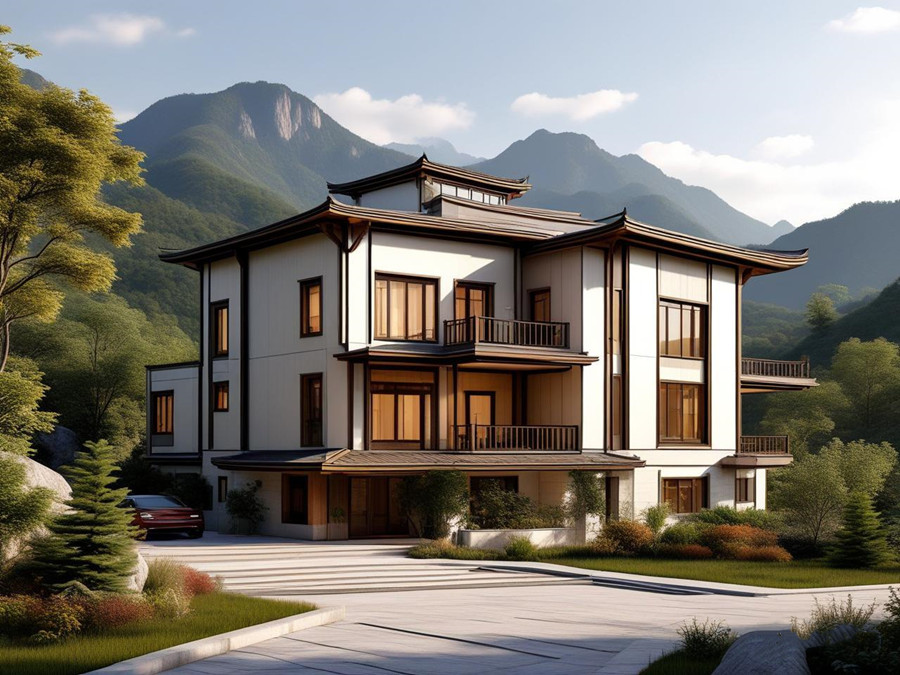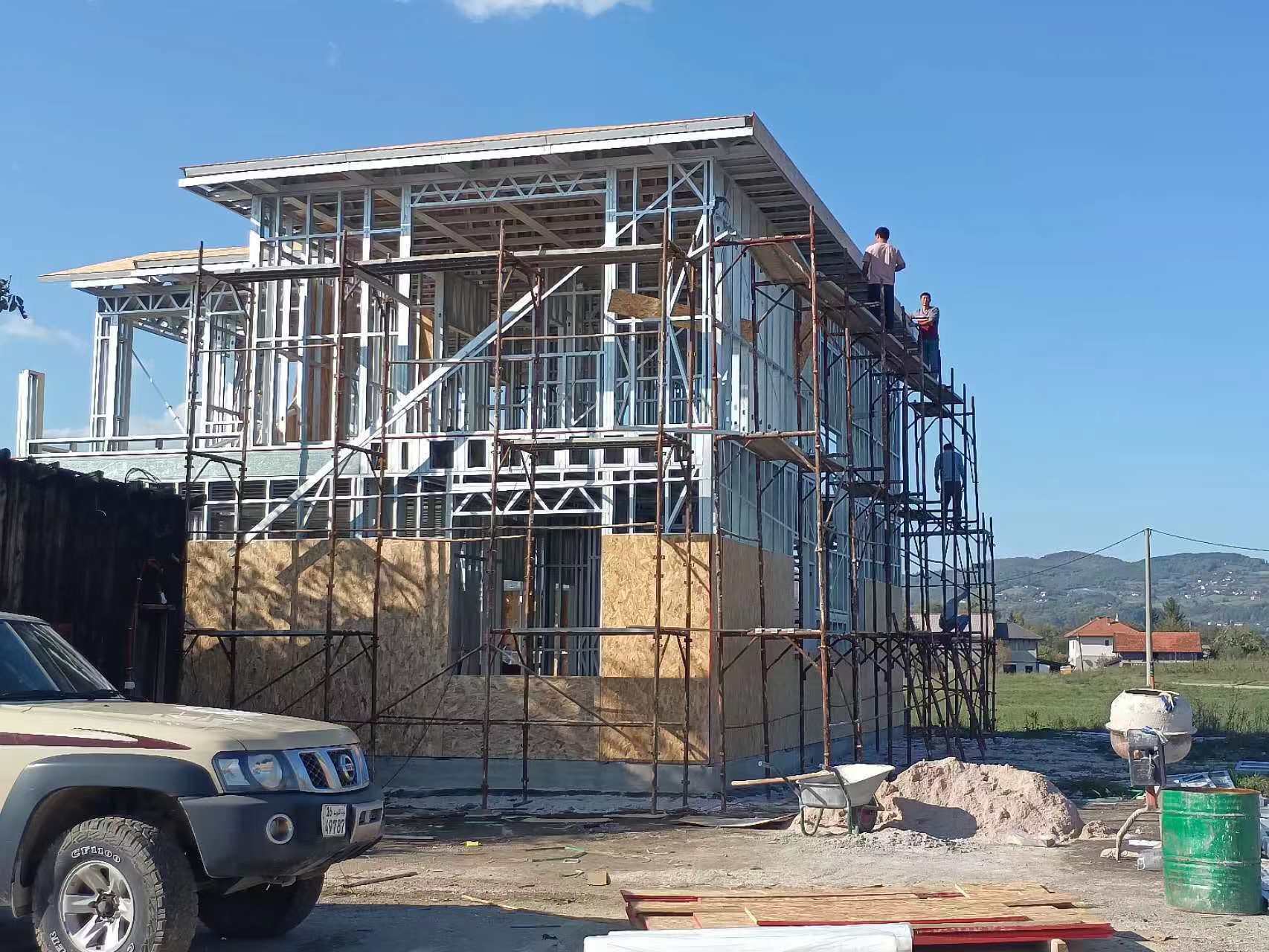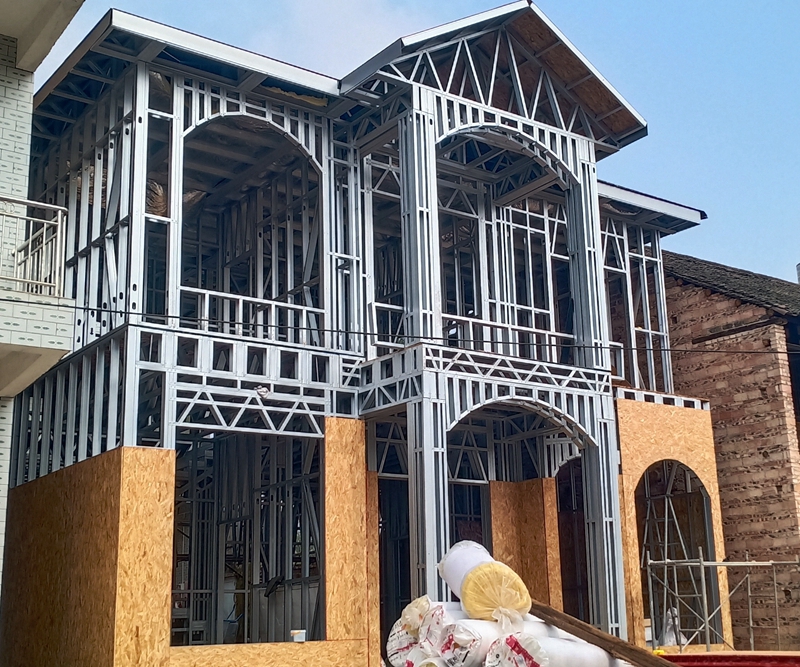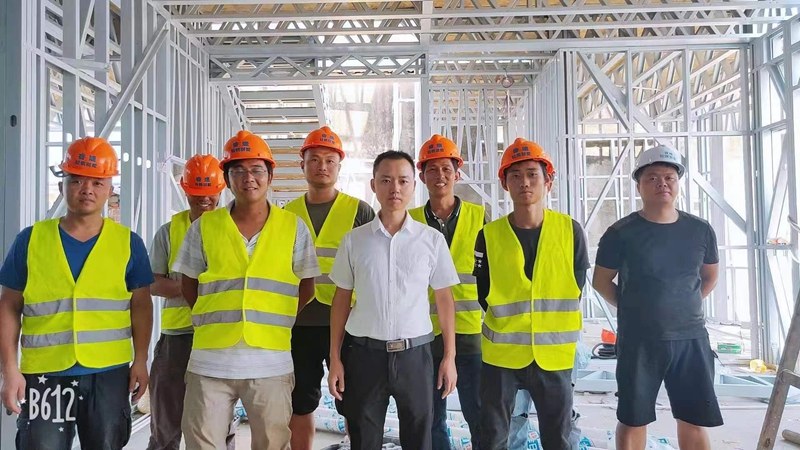The demand for sustainable and resilient housing in remote areas has surged, driven by eco-tourism, off-grid living trends, and infrastructure development. Steel structure villas, with their modular design and adaptability, are emerging as a viable solution. This article explores the feasibility, challenges, and cutting-edge strategies for constructing steel villas in remote regions, optimized for Google ranking with key terms like "steel structure villas," "remote construction,"*and "prefabricated housing."

1. Why Steel Structures Excel in Remote Areas
1.1 Prefabrication & Rapid Assembly
Steel villas are 75-90% factory-prefabricated, drastically reducing on-site labor and construction time. For example:
•A 300 m² villa can be assembled in 15–20 days (vs. 6+ months for concrete).
•Requires only 5–8 workers (vs. 20+ for traditional methods).
•Ideal for areas lacking local skilled labor or materials like bricks and timber.
1.2 Transport Efficiency
Steel components are lightweight and compact:
•A single 40-ft container holds modules for 80–120 m² of living space.
•Helicopter transport is feasible for inaccessible zones (e.g., used in Tibet’s Medog County projects).
1.3 Environmental Resilience
•Earthquake resistance: Steel’s ductility withstands seismic forces 5x better than concrete.
•Hurricane-proofing: Bolted connections and aerodynamic designs reduce wind damage.
•Corrosion resistance: Galvanized steel (275 g/m² coating) suits coastal or tropical climates.

2. Key Challenges & Cost Considerations
2.1 Logistics and Costs
| Cost Factor | Standard Region ($/m²) | Remote Area Markup |
| Material Transport | $12–18 | +200–300% |
| Foundation Work | $23–30 | +150% |
| Equipment Rental | $8–12 | +400% |
Case Study: A villa in Kazakhstan’s Altai Mountains saw 38% of total costs allocated to logistics, versus <15% in urban areas.
2.2 Environmental Adaptations
•Extreme cold: Insulation upgrades (e.g., 150mm polyurethane panels vs. standard 100mm).
•Desert heat: Reflective coatings and passive cooling designs reduce energy use by 40%.
•High humidity: Chromate conversion coatings prevent rust in rainforests.

3. Breakthrough Solutions for Remote Construction
3.1 Advanced Technologies
•3D-printed joints: Portable metal printers create custom connectors onsite (e.g., China State Construction’s 2024 system).
•Solar-powered construction: Huawei’s 2025 “Smart Site Kit” integrates solar panels, Starlink internet, and AR guides for off-grid builds.
3.2 Hybrid Material Strategies
Combine steel frames with local materials to cut costs and enhance sustainability:
•Bamboo-steel composites: Used in Laos’ Luang Prabang eco-villas, reducing costs by 15–20%.
•Recycled steel: Lowers carbon footprint and aligns with EU’s CBAM carbon tariffs (steel villas emit 38% less CO₂ than concrete).
3.3 Policy Incentives
•China’s Western Development Policy: Subsidies up to $70/m² for steel structures.
•UN Sustainable Development Goals: Tax breaks for off-grid solar-integrated villas.

4. Future Trends
•AI-driven customization: Platforms like Autodesk’s 2025 BIM 360 allow remote clients to design villas via VR.
•Hydrogen construction equipment: Zero-emission cranes and welders for eco-sensitive zones.
•Blockchain supply chains: Track steel from mill to site, ensuring ethical sourcing.
Conclusion
Steel structure villas are not only feasible in remote locations but also offer superior speed, durability, and eco-compliance. Success hinges on:
1. Selecting sites within 50 km of transport hubs.
2. Investing in hybrid materials and solar-storage systems.
3. Leveraging government incentives for sustainable builds.
For developers and adventurers alike, steel villas represent the future of resilient, low-impact living in Earth’s most challenging environments.